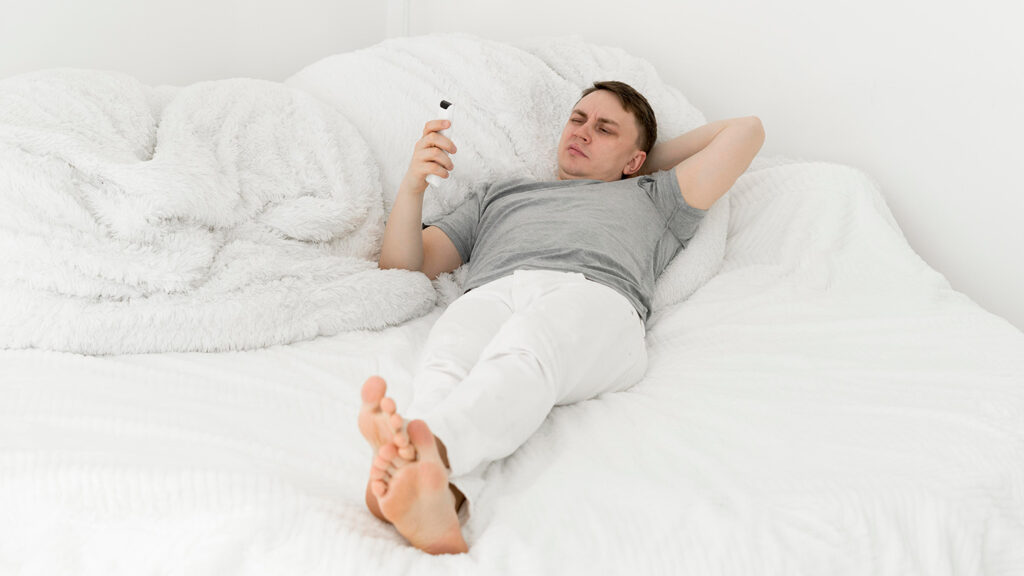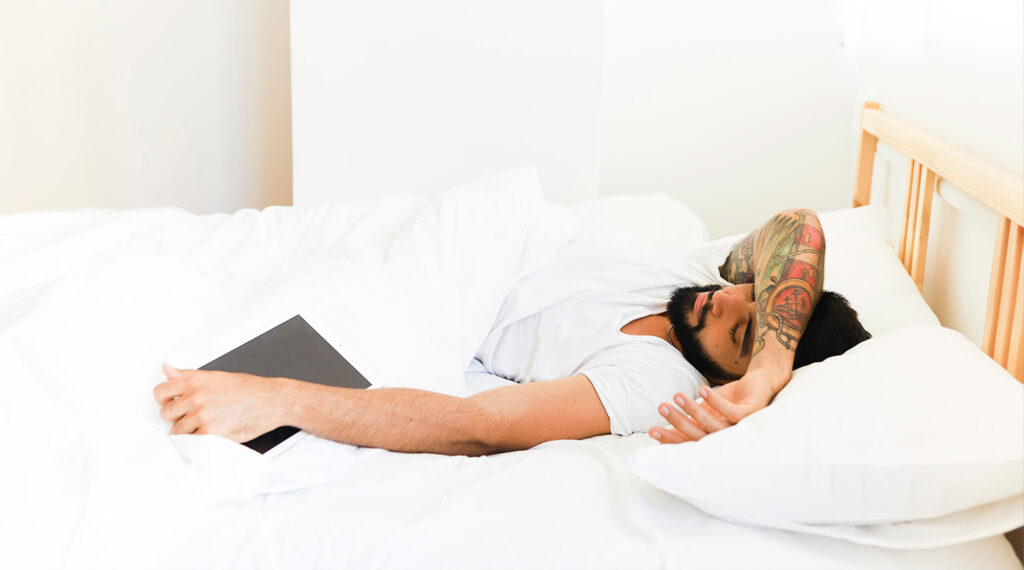In the ever-evolving landscape of wellness trends, a peculiar and potentially harmful practice has emerged: “bed rotting.” This trend involves spending excessive amounts of time lying in bed, often under the guise of self-care or stress relief. While the notion of extended rest might seem appealing, it is crucial to understand the adverse effects that prolonged bed rest can have on your muscles, joints, and overall health.
What is “Bed Rotting”?
“Bed rotting” is a term that has recently gained traction on social media platforms. It refers to spending extended periods in bed, not due to illness or injury, but as a form of relaxation or escape from daily life stresses. Proponents of this trend argue that it offers a break from the constant hustle and bustle, providing a sanctuary for mental recuperation. However, the physical repercussions of such behavior are often overlooked.
The Physical Consequences of Prolonged Bed Rest
As a Senior Physiotherapist, I have witnessed firsthand the detrimental effects of prolonged inactivity on the body. Our muscles and joints are designed for movement, and extended periods of immobility can lead to significant health issues. Here’s a detailed look at the impact:
Muscle Atrophy
Muscle atrophy, or the wasting away of muscle tissue, is one of the most immediate consequences of prolonged bed rest. Muscles require regular use to maintain their mass and strength. When you spend extended periods lying in bed, your muscles are deprived of the necessary stimulation, leading to a decrease in muscle mass. This process can begin in just a few days of inactivity.
– Loss of Strength: Without regular movement, muscles lose their power. This can make simple tasks, such as lifting objects or walking, increasingly difficult.
– Decreased Endurance: Along with strength, muscle endurance diminishes. This means you may tire more quickly during physical activities.
– Increased Risk of Injury: Weaker muscles are more susceptible to strains and injuries, which can further limit your mobility.
Joint Stiffness
Joints rely on movement to stay lubricated and flexible. Lack of activity can cause them to become stiff and painful. This stiffness is often accompanied by a decrease in the range of motion, making it difficult to perform everyday activities.
– Reduced Mobility: Stiff joints can make it hard to move freely, impacting your ability to walk, bend, or reach.
– Pain and Discomfort: Stiffness often comes with pain, which can discourage further movement and create a vicious cycle of inactivity.
– Long-term Damage: Prolonged joint stiffness can lead to conditions such as arthritis, where joint inflammation and pain become chronic.

The Psychological Impact
While the physical effects are concerning, the psychological impact of “bed rotting” should not be underestimated. Although lying in bed might initially seem comforting, it can lead to feelings of isolation, depression, and anxiety. Humans are inherently social and active beings, and prolonged inactivity can negatively affect mental health.
– Increased Anxiety and Depression: Lack of physical activity is closely linked to increased levels of anxiety and depression. Movement helps release endorphins, the body’s natural mood lifters.
– Feeling of Isolation: Spending excessive time in bed can lead to social isolation, which further exacerbates feelings of loneliness and depression.
– Disrupted Sleep Patterns: Ironically, spending too much time in bed can disrupt your sleep patterns, leading to insomnia or poor-quality sleep.
The Importance of Regular Movement
Given the significant drawbacks of prolonged bed rest, it’s crucial to incorporate regular movement into your daily routine. Here are some practical tips to stay active and maintain your physical and mental health:
Daily Stretching
Stretching is a simple yet effective way to keep your muscles and joints flexible. It helps improve blood circulation, reduces stiffness, and enhances your range of motion. Aim to stretch for at least 10-15 minutes each day, focusing on major muscle groups.
Short Walks
Even brief periods of walking can significantly benefit your health. Try to get up and walk around every hour, especially if you’re working from home or spending extended periods sitting. Short walks help maintain cardiovascular health, muscle strength, and joint mobility.
Light Exercises
Incorporate light exercises such as yoga, Pilates, or resistance training into your routine. These activities not only keep your muscles engaged but also improve your overall well-being. You don’t need to spend hours at the gym; even 20-30 minutes of exercise daily can make a significant difference.
Mindful Movement
Engage in activities that promote mindful movement, such as tai chi or qigong. These practices combine gentle physical exercise with mindfulness, helping to reduce stress and improve mental clarity.
Balancing Rest and Activity
While rest is essential for recovery and mental health, it’s important to strike a balance between rest and activity. Instead of spending entire days in bed, consider integrating relaxation techniques that encourage gentle movement. For instance, practicing deep breathing exercises, meditating while sitting in a comfortable chair, or engaging in light stretching can provide relaxation without the adverse effects of prolonged bed rest.
Conclusion
The “bed rotting” trend might appear as a harmless or even beneficial form of self-care, but the reality is far different. Prolonged lying in bed can lead to muscle atrophy, joint stiffness, and a host of psychological issues. As a Senior Physiotherapist, I urge you to prioritize regular movement and activity in your daily life. By doing so, you can maintain your physical health, support your mental well-being, and enjoy a balanced, fulfilling lifestyle. Remember, a healthy body and mind are your best assets, so let’s keep moving and stay active!
Dr. Amit Saraswat
Senior Physiotherapist (Physioveda India)
For more tips on maintaining muscle and joint health, feel free to contact us. Your well-being is our priority.


